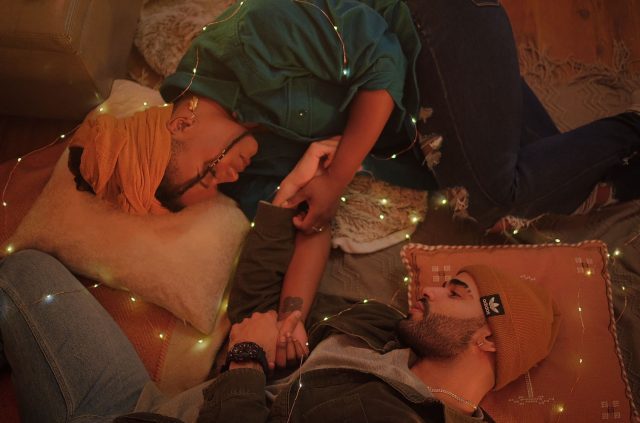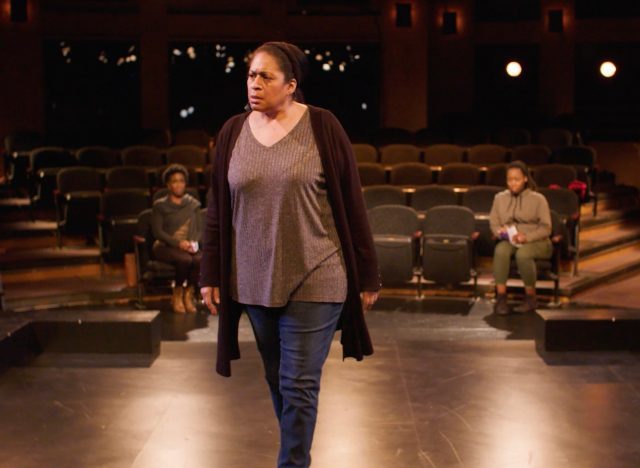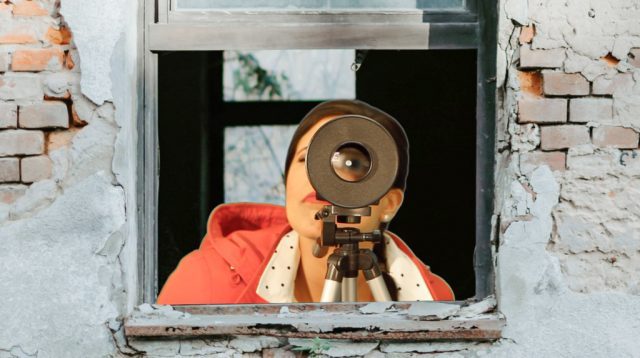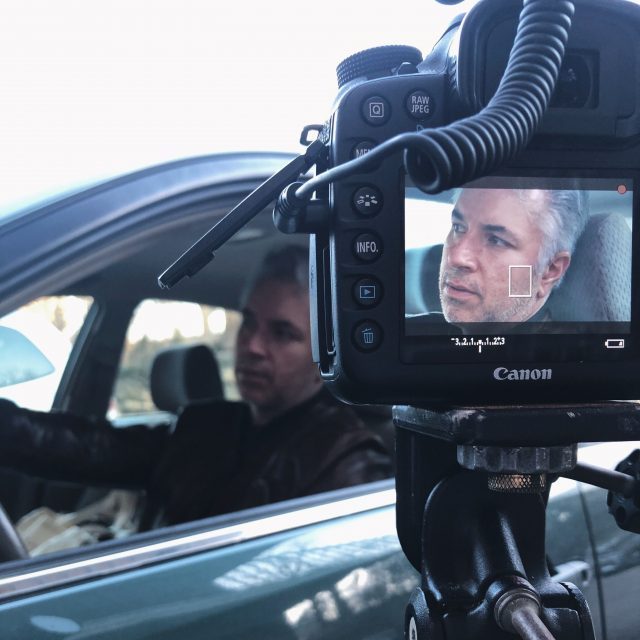Who: Alvin Ailey American Dance Theater
What: Fiftieth anniversary performance of Cry
Where: Ailey All Access
When: Sunday, May 9, free, 3:00
Why: On May 4, 1971, at New York City Center, Alvin Ailey American Dance Theater premiered the sixteen-minute solo Cry, which Ailey choreographed on Judith Jamison as a birthday present for his mother, Lula Cooper. The piece, set to Alice Coltrane’s “Something about John Coltrane,” Laura Nyro’s “Been on a Train,” and the Voices of East Harlem’s “Right On Be Free,” has now been recorded for online viewing, featuring Jacqueline Green, and will make its debut as a Mother’s Day Matinee on May 9 at 3:00. “Exactly where the woman is going through the ballet’s three sections was never explained to me by Alvin,” Jamison writes in her autobiography, Dancing Spirit. “In my interpretation, she represented those women before her who came from the hardships of slavery, through the pain of losing loved ones, through overcoming extraordinary depressions and tribulations. Coming out of a world of pain and trouble, she has found her way — and triumphed.” The piece will be followed by a discussion between Green and Ailey dancer Constance Stamatiou about the work, which Ailey dedicated to “all Black women everywhere — especially our mothers.” The next day, AAADT will present the livestreamed panel “Celebrating Judith Jamison” on Jamison’s seventy-eighth birthday, with Jamison, Sarita Allen, Linda Denise Fisher Harrell, Renee Robinson, Linda Celeste Sims, Dwana Smallwood, Nasha Thomas, and Lisa Johnson-Willingham.
this week in (live)streaming
REP ON-AIR: THE WAVES IN QUARANTINE

The cast of The Waves in Quarantine comes together over Zoom in Berkeley Rep live discussion on May 6
Who: Raúl Esparza, Alice Ripley, Nikki Renée Daniels, Carmen Cusack, Darius de Haas, Adam Gwon, Manu Narayan, Johanna Pfaelzer
What: Live discussion about six-part The Waves in Quarantine
Where: Berkeley Rep Zoom
When: Thursday, May 6, free with RSVP, 8:30 (presentation available on demand through May 28)
Why: In 1990, New York Theatre Workshop presented The Waves, a musical adaptation by director Lisa Peterson and composer and lyricist David Bucknam of the 1931 novel by Virginia Woolf about six friends, portrayed by Catherine Cox, Diane Fratantoni, Aloyisius Gigl, John Jellison, Sarah Rice, and John Sloman. During the pandemic lockdown, Berkeley Rep has taken a deep dive into the novel and adaptation, exploring the characters, the settings, Woolf’s life, and the making of the musical. Conceived by Esparza and Peterson and directed by Peterson, The Waves in Quarantine: A Theatrical Experiment in 6 Movements is streaming for free through May 28, with songs, reflections, recitations, and memories shared by actors Raúl Esparza, Alice Ripley, Nikki Renée Daniels, Carmen Cusack, Darius de Haas, and Manu Narayan in addition to Adam Gwon, who wrote additional music and lyrics for the show. The actors film themselves at home and outside and meet over Zoom over the course of ninety minutes, covering “Memory,” “Those We Love,” “The Female Gaze,” “Absence,” “The Sun Cycle,” and “Reunion,” paying special tribute to Bucknam, who passed away in 2001 at the age of thirty-two. On May 6 at 8:30 EST, members of the cast will reunite over Zoom for a live discussion about The Waves in Quarantine, moderated by Berkeley Rep artistic director Johanna Pfaelzer. Admission is free with RSVP.
SIGNATURE THEATRE 30th ANNIVERSARY GALA: THREE DECADES TOGETHER, ONE FUTURE FOR US ALL

Who: Anna Deavere Smith, Katori Hall, Samuel D. Hunter, Dominique Morisseau, Lynn Nottage, Dave Malloy, Abraham Kim, Jane Lui, Joe Ngo, Courtney Reed, more
What: Gala celebration and fundraiser
Where: Signature Theatre YouTube
When: Thursday, May 6, free with RSVP, 7:00
Why: One of the theaters I have missed the most during the pandemic lockdown has been the Signature, home to four unique spaces in addition to a bar with live music on far west Forty-Second St. Founded in 1991 by James Houghton, the Signature is a playwright-driven company, having dedicated seasons to a wide range of established and emerging writers, from Edward Albee, Horton Foote, Arthur Miller, Sam Shepard, August Wilson, and A. R. Gurney to Paula Vogel, Branden Jacobs-Jenkins, Suzan-Lori Parks, Will Eno, María Irene Fornés, and Annie Baker. During the pandemic, Signature has been posting live discussions, behind-the-scenes videos, and clowning challenges by Bill Irwin. On May 6, the theater will host its thirtieth anniversary gala, paying tribute to resident playwright Anna Deavere Smith, who was in the midst of a season that included revivals of Fires in the Mirror and Twilight: Los Angeles, 1992 when the coronavirus crisis shut down the city. Among those making appearances at the free event, titled “Three Decades Together, One Future for Us All” and directed by Lila Neugebauer, are resident playwrights Katori Hall, Samuel D. Hunter, Sarah Ruhl, and Lynn Nottage, with performances by Dave Malloy and members of the cast of Lauren Yee’s Cambodian Rock Band (Abraham Kim, Jane Lui, Joe Ngo, and Courtney Reed).
THE LAST FIVE YEARS
THE LAST FIVE YEARS
Extended through May 9
Tickets: $32.50 for time-specific single stream, $47.50 for forty-eight-hour on-demand viewing with behind-the-scenes featurette
www.ootbtheatrics.com/l5y
“I think you’re really gonna like this show / I’m pretty sure it doesn’t suck / See, you’re laughing, and I’m smiling,” Cathy Hiatt (Nasia Thomas) sings early in Jason Michael Webb’s exhilarating, intimate, and emotional adaptation of Jason Robert Brown’s 2001 two-character sung-through musical, The Last Five Years. Produced by Out of the Box Theatrics, Holmdel Theatre Company, and Blair Russell, this online version, streaming through May 9, was rehearsed remotely and filmed in a cramped New York City apartment, with director of photography and videographer Brian Bon using a handheld camera, lending an immediacy and urgency to the proceedings, as well as an overwhelming feeling of claustrophobia as Jewish writer Jamie Wellerstein (Nicholas Edwards) and actress Cathy journey across the beginning, middle, and end of a relationship, told backward by Cathy but chronologically by Jamie. When career success seems imminent for one but not the other, jealousy and envy threaten their love, made all the more intense by the close quarters necessitated by Covid-19 restrictions.
As Cathy and Jamie make their way through the apartment, they encounter keyboardist and associate music director Cynthia Meng, cellist Sterling Elliott, violist Orlando Wells, guitarist Jonathan Linden, bassist Chelton Grey, and drummer Brandon Brooks sitting in corners, relaxing on the bed, or suddenly appearing in the living room or kitchen, performing poignant orchestrations of such songs as “Still Hurting,” “The Schmuel Song,” “The Next Ten Minutes,” and “A Miracle Would Happen / When You Come Home to Me.” Casting two people of color and not changing the script — the original production in Skokie starred Lauren Kennedy (replaced by Sherie Rene Scott) and Norbert Leo Butz — lead to scenes both moving and, at times, humorous, as when Jamie considers his potential romantic partners in “Shiksa Goddess,” explaining, “I’ve been waiting through Danica Schwartz and Erica Weiss / And the Handelman twins / I’ve been waiting through Heather Greenblatt, Annie Mincus, Karen Pincus, and Lisa Katz / And Stacy Rosen, Ellen Kaplan, Julie Silber, and Janie Stein / I’ve had Shabbos dinners on Friday nights / With every Shapiro in Washington Heights” as photos of the women are projected on the wall behind him. But at the heart of the story is a universality that transcends race, religion, or ethnicity as two people try to build a life together.

Cathy (Nasia Thomas) and Jamie (Nicholas Edwards) tell their story in opposite directions in The Last Five Years (photo © Gerald Malaval)
Thomas (Ain’t Too Proud: The Life and Times of the Temptations, Beautiful: The Carole King Musical) and Edwards (Godspell, Frozen) are utterly engaging as Cathy and Jamie; you are instantly drawn into their orbit, rooting for them even when you know what’s going to happen from the very first song. Thomas is particularly captivating as Cathy digs deep into who she is and what she desires. Tony winner Webb (The Color Purple, Choir Boy) shoots some of the scenes without cuts as the camera winds through multiple rooms, making the most of the surroundings, which feature a fun production design by Adam Honoré that includes lots of books, theatrical posters, and Playbills; the costumes are by Siene Zoë Allen, with sound by Nicole Maupin and Carin M. Ford. Brown (13, The Bridges of Madison County) won Drama Desk Awards for Best Music and Best Lyrics back in 2002; two decades later, The Last Five Years is as fresh and alive as ever. It definitely doesn’t suck.
STUDIO THEATRE: UNTIL THE FLOOD

Until the Flood features three women playing multiple roles in dazzling production
Studio Theatre associate artistic director Reginald L. Douglas takes Dael Orlandersmith’s one-woman show, Until the Flood, to a whole new level in a stirring, deeply affecting online version, streaming through May 9. In January 2018, Pulitzer Prize finalist Orlandersmith presented Until the Flood at Rattlestick Playwrights Theater. In the play, which was originally commissioned by the Repertory Theatre of St. Louis, Orlandersmith portrays eight composite characters in relating the tragic story of the killing of Michael Brown at the hands of police officer Darren Wilson in Ferguson, Missouri, on August 9, 2014; Orlandersmith traveled to Ferguson and interviewed dozens of people to understand the incident from every possible angle. (A recording of the Rattlestick show can be viewed for free here.)
Douglas has transformed the work by having a trio of stunning Black women of different ages, Felicia Curry, Ora Jones, and Billie Krishawn, perform the roles of Black retired schoolteacher Louisa Hemphill (70s), white retired policeman Rusty Harden (75), Black teen Hassan (17), white high school teacher Connie Hamm (35), Black barber Reuben Little (late 60s/early 70s), white landowner and electrician Dougray Smith (late 30s/early 40s), Black high school student Paul (17), and Black Unitarian minister Edna Lewis (late 50s/early 60s), who share their thoughts on racism, anger, violence, poverty, fear, bigotry, liberalism, homosexuality, protest, privilege, education, and other social issues. There is almost too much pain to bear, but keep watching.
“It wasn’t until I reached my mid- to late-30s and moved back to St. Louis, and when both parents died, I realized, saw; and I remember my father saying how racism causes self-hate,” Hemphill (Jones) recalls. “Legacy is the word that comes to mind. Legacy. The legacy of self-hate. The legacy of keeping your place. The legacy of grinning and bowing. The legacy of seeing yourself as a n****r, being taught to see yourself as a n****r. My God, how I hate that word. How I hate when anybody, white or Black, uses it. That young man, Michael Brown, his death, he was made to see himself that way — as a n****r. As someone who was nondeserving. He was set up, and he set himself up to fail.”
Filmed using several cameras that follow the characters on Studio Theatre’s DC stage and in the empty seats, moving from close-ups to longer shots that remind us of the loneliness and isolation of the pandemic lockdown, the eighty-minute production might be specifically about Brown and Ferguson, but now, in 2021, it also evokes George Floyd and Minneapolis, Adam Toledo and Chicago, Breonna Taylor and Louisville, Daunte Wright and Brooklyn Center, Rayshard Brooks and Atlanta, Elijah McClain and Aurora, Philando Castile and Falcon Heights, Alton Sterling and Baton Rouge, Sandra Bland and Hempstead, Freddie Gray and Baltimore, Tamir Rice and Cleveland, and so many other men, women, and children of color killed by police around the country since Brown’s murder.

Dael Orlandersmith’s Until the Flood explores the Michael Brown shooting and more in blazing Studio Theatre adaptation
“There is a part of me that wants to go, get out. There’s a part that wants to stand before a gun, right in front of some redneck, hungry motherfucker who don’t know my name, who don’t care what my name is, but I know this motherfucker would aim to shoot and not miss,” Hassan (Krishawn), wearing a hoodie, shouts. “I’m seventeen, man. Sometimes I feel seven, sometimes I feel seventy, and I want out. Spill my blood, man, spill it. I just want out! Do it!”
Each scene seamlessly transitions to the next with the actresses, sometimes with script in hand, slightly overlapping in a kind of nonphysical handoff, acknowledging one another as one takes center stage and the other sits down, melding audience, performer, and character. (The expert lighting and sound are by Jesse Belsky and Elisheba Ittoop, respectively.) Douglas and video director Wes Culwell occasionally cut to the reactions of the other two while the third is delivering a monologue; in addition, the two seated actresses perform dialogue within the third’s speech when a character other than the one they are playing speaks.
Curry (Collective Rage: A Play in Five Boops, Bloody Bloody Andrew Jackson), Jones (Curve of Departure, The Children), and Krishawn (Blood at the Root, Ohio State Murders) are extraordinary, gaining power and passion as Orlandersmith, whose other works include Forever, Yellowman, Monster, and The Gimmick, digs deeper into the many aspects of racial injustice, as seen from multiple sides.
“I’m not gonna live in fear. I won’t give in to it,” Paul (Curry at her fiercest) declares before walking over to a concrete pillar, softly looking at it and touching it, then admitting, “I live in the Canfield apartments just like Michael Brown did. You know, if you look at a housing project or low-income apartments like Canfield, if you really look at it, it looks just like a prison. I mean, it really does look just like a prison. Sometimes it feels like that too. Feels just like a prison. There’s something that’s just, I don’t know, defeated there. It feels defeated.”
The finale is not about defeat, nearly exploding off the screen as Curry, Jones, and Krishawn unite, three generations coming together onstage while pointing to the future. Throughout the play, it becomes more and more apparent via costume changes that Krishawn is pregnant, and by the end, she is rubbing and holding her belly, hoping and praying, along with us, that her baby won’t become the next Michael Brown.
NEW CAMERATA OPERA: THE BROOKLYN JOB

New Camerata Opera attempts to pull off an interactive, immersive virtual art heist in The Brooklyn Job
Who: New Camerata Opera
What: Virtual world premiere
Where: New Camerata Opera Zoom
When: Thursday, May 6, and Saturday, May 8, $40-$160, 8:00
Why: On March 18, 1990, thieves broke into the Isabella Stewart Gardner Museum in Boston and got away with thirteen masterpieces worth half a billion dollars; you can learn more about the still-unsolved crime in the new Netflix documentary This Is a Robbery: The World’s Biggest Art Heist. Immersive specialists New Camerata Opera will be pulling off its own interactive, virtual museum heist this week with the premiere of The Brooklyn Job. Written and directed by Sarah Morgan Ashey, the piece, debuting May 6 and 8 at 8:00 over Zoom as part of the sixth annual New York Opera Fest, mixes prerecorded elements filmed and edited by Erik Bagger with live performance, featuring sopranos Samina Aslam and Barbara Porto, mezzo-sopranos Eva Parr, Julia Tang, and Anna Tonna, tenors Victor Khodadad and Bagger, baritones Stan Lacy and Scott Lindroth, and bass Kofi Hayford. Dan Franklin Smith is the music director. New Camerata Opera has presented such online works as Julie, the nine-episode Ives Project, and The Prince von Pappenschmear, a Prequel during the pandemic lockdown; The Brooklyn Job is a participatory opera that invites viewers to take polls and, for an additional fee, order a cocktail box (by May 3) that comes with a Woman in Gray, Sunlight Effect, or Rhubarb Spritz, spiced caramel popcorn, and an art-focused interactive program guide.

